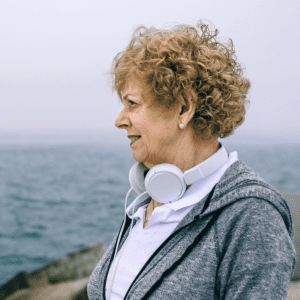Time For A Change? Ageist Stereotypes Are Commonplace and Concerning During COVID-19

Time For A Change? Ageist Stereotypes Are Commonplace and Concerning During COVID-19
July 22, 2020
While the news about the coronavirus and older adults continues to be worrisome, what’s also disturbing is the continued presence of ageist stereotypes and our portrait of older adults during the coronavirus pandemic. In fact, as a group of noted geriatricians and gerontologists recently proclaimed, “Older adults have shown remarkable agency in this crisis as witnessed by their willingness to engage in positive public health practices, such as social isolation (and) shelter in place.” If anything, perhaps we should be applauding the older adults in our lives who have weathered the pandemic with grace and strength, despite the significant costs to their social well-being and even physical health.
But what’s not to be applauded is the ongoing presence of ageism that most older adults seem to experience in their day-to-day lives. In a new poll of more than 2000 adults ages 50-80 from the University of Michigan’s National Poll on Healthy Aging over 80% of respondents reported experiencing at least one form of ageism in their daily lives, 65% reported regularly being exposed to ageist messages from their viewing or reading materials and 45% said they sometimes or often experienced ageism in interactions with other people. That’s a lot of negative imagery that regularly confronts older adults. And ironically, this poll was conducted prior to the onset of COVID-19. It’s likely that moments and messages of ageism may have increased due to the emergence of the virus and its impact on older adults.
In fact, a recent “zoom cast” of aging experts discussed ageism during the pandemic and reported that misconceptions about older adults have spread during the pandemic (though some are cautiously optimistic that increased media attention on seniors may lead to some improvement in how we treat our elders). But there’s no doubt, for example, that older workers may be less likely to be called back from furloughed jobs or that the focus on nursing homes has led to a view of all older people as being frail and infirm. And, as previously noted, older adults may be competing with younger patients for scarce health care resources, especially during hospitalization. As one group of experts decried, “How differently we might be acting if COVID-19 put young people, as opposed to older people, at more risk.”
And ageist attitudes even seem to influence enrollment in clinical trials to develop new treatments and vaccines for the coronavirus. A recent interview of Dr. Sharon Inouye of the Harvard Medical School and Hebrew Senior Life Center focused on the exclusion of older adults from such trials. While Dr. Inouye recognized there are concerns about side effects in older patients, the reality is that not including older people in clinical trials means you’re not testing new innovations on the population most at risk- and therefore potentially leaving seniors unable to benefit from new protocols or treatment options. So, while older adults have shown resilience during this pandemic, of necessity they need to be considered essential participants in the development of new strategies to fight the virus. Ageism should have no place when it comes to equal access to innovative care.







